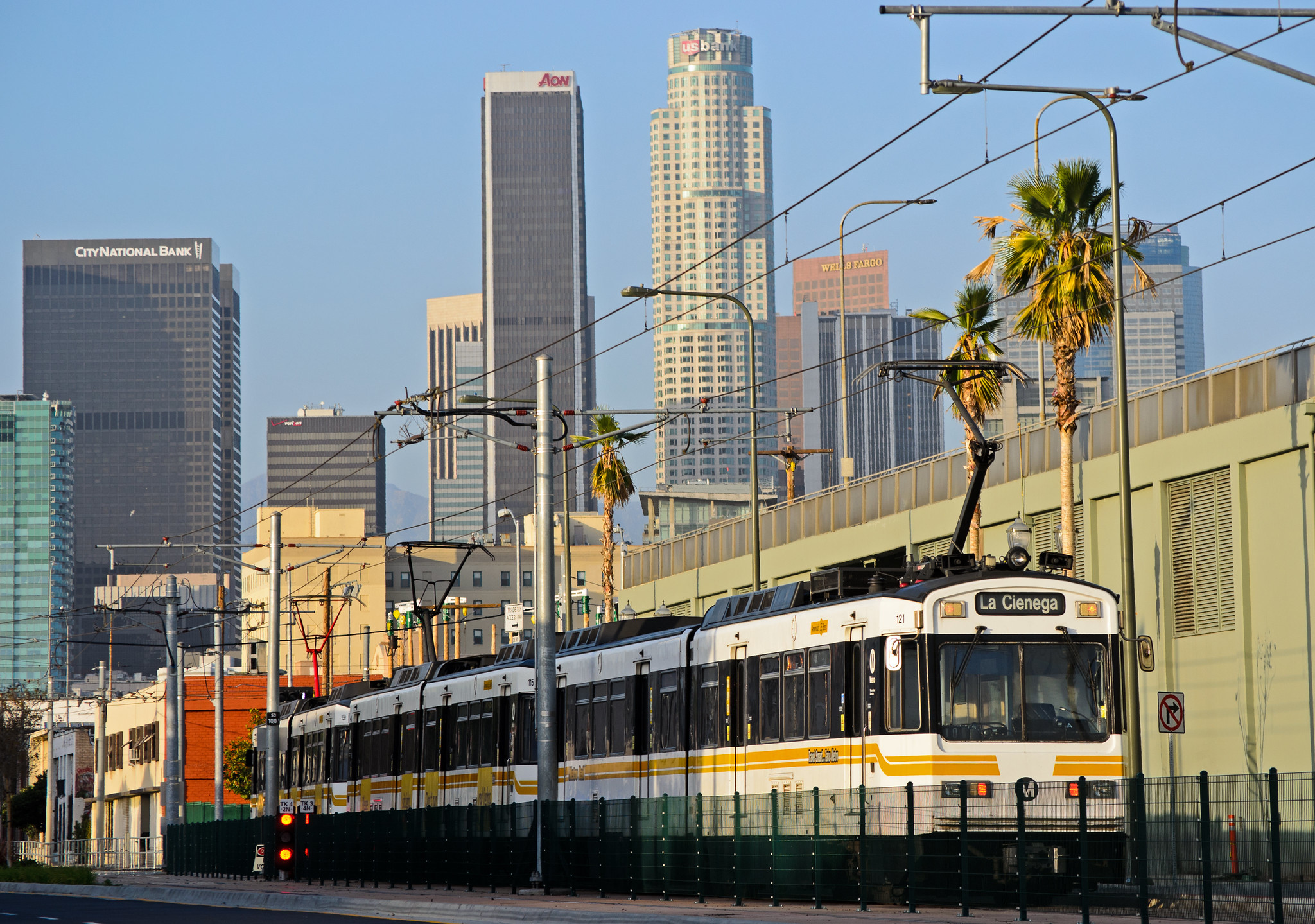Money isn't everything.
A new report is taking the measure of a half-cent sales-tax hike that three years ago sought to transform transit funding in Southern California — and finding that, while such a tax can be sold to the public, it is much harder to muster political support for long-term infrastructure spending.
The tax hike, proposed in 2016 ballot initiative known as Measure M, succeeded with California's tax-leery voters because local stakeholders created "a strong consortium behind it" and disarmed "organized opposition in front of it," according to the report, "Measure M: Lessons From a Successful Ballot Campaign," by the Eno Center of Transportation.
In November 2016, 71 percent of LA voters backed the ballot measure, a clear supermajority. As a result, Los Angeles could collect a windfall as high as $120 billion that could fund 50 transportation projects over the next four decades.
Advocates treated the measure like a political campaign — with a message tailored to voters on the short-term results of boosting the economy and improving traffic congestion and air quality — while downplaying long-term goals like "convincing many Angelinos to drive less and ride transit more," the report says.
"Anyone attempting to interpret or replicate Measure M’s victory ... cannot ignore its political strategy," says the report, written by UCLA Luskin School of Public Affairs professor Michael Manville.
But the successful political strategy behind the ballot measure has not translated into public support for and use of transit — and its tactics may have planted the seeds for that subsequent failure.
"Voters were expressly not offered a vision of a more multimodal or environmentally sustainable Los Angeles; they were mostly offered instead a vision of more jobs, better roads, and easier driving," Manville writes.
Three years later, with transit-project cost projections rising, support for transit is faltering. And the tax hike did nothing to help get Angelenos out of their cars — a trend that is only worsening.
Car ownership has exploded in Los Angeles as people acquired 2.1 million more cars between 2000 and 2015, according to a UCLA study. The rise in household vehicle ownership, nearly 10 percent between 2012 and 2017, even outpaced the region's population growth, about 4 percent over the same period.
And Southern California transit systems lost 72 million annual riders from 2012 to 2016. The city's bus system has shed 25 percent of its riders over the past decade, in a particularly discouraging trend.
Not surprisingly — given that most Southern Californians view life through their windshields — projects that extend the transit network, such as adding a new rapid bus route in Northeast LA and extending the purple line to Santa Monica, have run into heated opposition at community meetings and even lawsuits, while a plan from transportation officials to tax ride-share companies may not be as popular as the sales tax.
Meanwhile, California officials have done themselves no favor by allowing costs to spiral out of control.
The Los Angeles County Metro estimated a new rail line through the Sepulveda Pass could cost between $9.4 billion and $13.8 billion, depending on the plan. The line connecting the San Fernando Valley to Los Angeles's West Side would serve between 122,000 and 137,000 riders by 2042, according to Metro.
The cheapest option is a monorail that would require five miles of tunnels, while the most expensive option would use tunnels for the entire 13.5 mile route. The initial estimate for the Sepulveda Transit Corridor Project was $5.7 billion — roughly the amount available to be spent from the Measure M funds.
So, the moral of the story is, new revenue alone can't transform transit in Los Angeles — absent consensus-building about transforming the car culture.
"Los Angeles has a hard road in front of it in making the vision of Measure M a reality," the report says. "An electoral victory is the end of a political process, but only the beginning of a policy process. Regions unwilling to commit to the long-term project that is the latter may wish to think twice about the shorter-term project that is the former."





